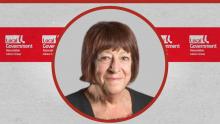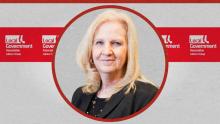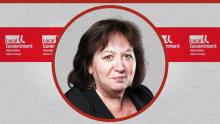LGA Labour and LabourList hosted the local government week ahead of the Labour Local Government Conference 2020 on 7-8 February. This was used as a chance for us to showcase the great contribution of Labour councils in power and opposition, and discuss. Please have a read of some of the articles written by our brilliant councillors, MPs and trade unionists, about their experiences of local government.
Welcome to local government LabourList
Welcome to local government week on LabourList – a chance for us to showcase, discuss and debate the role, contribution and work of Labour councils and councillors in both power and opposition in the week leading up to Labour Local Government Conference on Saturday, February 8th.
Why LabourList and LGA Labour are hosting local government week
Welcome to local government week on LabourList. The party has just suffered another devastating defeat in a general election, as none of you need reminding, and members will soon be electing a new leadership team. This weekend, the Association of Labour Councillors (ALC) and the LGA Labour Group will hold a Local Government Conference in Nottingham, where the next leadership hustings is going to take place. We thought this would be the perfect time to highlight the importance of councillors – after all, it is in local government that Labour holds power across the United Kingdom.
Why Labour MPs should turn to Labour councils for inspiration
Around the country, Labour’s elected local representatives are working day in, day out, to push back against austerity and try to deliver innovative and positive solutions for the people they represent. Whether they are councillors, metro mayors or police and crime commissioners, we are lucky to have Labour representatives at every level putting our values into action. They show what Labour can do when in power, which is why I think MPs and the wider labour movement should try harder to listen to them.
My experience of local government will make me a better MP
Today is the start of Week Eight in my new role as a Labour MP. The first question I often get asked is: “So, how is life as an MP?”. The truth is that each day has been different so far, and at this stage I am just trying not to get lost in the Commons. I am still very much getting to grips with the new procedures, including some of the many long-held customs and practices that I hope will evolve as we make our parliament more in touch with modern day life.
Labour councillors are on the frontline – let’s not forget it, Cllr Anntoinette Bramble
The general election result in December hurt all of us in the labour movement who wanted to see our country change for the better. To see our hard work rewarded with the strongest Tory majority since 1987 was deeply painful. It is devastating for the people we fight for ─ public sector workers, trade unionists, people on poverty pay and zero-hour contracts ─ all of whom have struggled under Tory austerity for the last decade.
My three-point plan to support councillors as Labour’s next leader, Emily Thornberry MP
We are out of power in Westminster. But that does not mean we are out of power full stop. I know first-hand the difference that Labour councillors can make. When my dad walked out on us when I was seven years old, we were left penniless and eventually homeless. It was a Labour councillor who helped us find somewhere to stay, and then got us into a house on a local council estate.
Labour councils are not simply enabling Tory cuts – we’re making a difference, Cllr Andrew Wester
As recently as 2018, Trafford was known as one of the jewels in the Conservative crown. “Tory Trafford” was that rare beast: a Tory Met in the north of England. The local elections in 2018 and 2019 brought this Tory hegemony to an end. We bucked the national trend, with Labour becoming the largest party and the ruling group with four gains in 2018, before taking six seats from the Tories in May 2019 to secure the first Labour majority in Trafford for 16 years.
The Preston model – and many more Labour council innovations, Hannah Lazell
When many people think of councils, they think of the potholes on their road being filled, bins being collected and the leisure centres or parks they use for the odd fitness session. Or it may be that they think of a council tax bill, fly-tipping or streetlights. These are the day-to-day issues that make our communities better – or worse – places to live, and the ones that every Labour activist hears on the doorstep.
Why devolution matters for South Yorkshire – and Labour’s future, Dan Jarvis MP
The moment that the exit poll was announced on December 12th will be ingrained in all of our memories for a very long time. Watching hard-working, committed Labour MPs and their staff being unceremoniously defeated as communities that had been red for generations turned blue in an instant was a truly demoralising experience that our party cannot afford to ever repeat.
Our experience of seizing power in true blue North Hertfordshire, Cllr Judi Billing
As someone who has spent far too many years as a Labour councillor in deep blue Tory Hertfordshire, I don’t mind admitting I had become all too used to the routine of being in opposition. I would diligently help local residents with their problems great and small, and spend countless evenings in dusty committee rooms cajoling and sometimes shouting at the ruling Tory councillors in an attempt to make their bad policies slightly better. It is worthwhile, important work, and thousands of Labour councillors do it week in and week out in areas where there are no other Labour politicians. But it isn’t the same as having the power to deliver real change.
The cynical ‘fair funding review’ will be a major test for new Tory MPs, Andrew Gwynne MP
The ‘fair funding review’, which will affect how funding is allocated and redistributed between local authorities from 2020 onwards, has been exposed as another cynical Tory plan. We know that it risks leaving more sick and vulnerable people without the care they need – particularly areas that voted Conservative for the first time at the last general election.
My vision for Labour in local government – green, democratic and socialist, Rebecca Long-Bailey MP
Local government is critical to us winning in Westminster and delivering our 21st-century socialist policies – but for that to happen, we need to develop a vision of local government that genuinely trusts local people to make decisions for their communities, and offers the resources and powers to deliver on those decisions.
Labour in local government needs to look more like our communities, Cllr Farah Hussain
With the election of 104 female MPs last year, the Parliamentary Labour Party (PLP) is now 51% female, reflecting the wider population. The smashing of this glass ceiling is something to be celebrated, and the incredible role that Labour Women’s Network and Fabian Women’s Network have played to encourage and support women to stand should be applauded. But Labour in local government, which in the past has been more diverse than a PLP, is now lagging well behind.
Are Labour ‘establishment’ councils the problem?, Cllr Michael Payne
In May 1973, Ted Heath was Prime Minister, Pink Floyd had recently released their album Dark Side of the Moon and VAT had just come into effect in the UK. This month also marked the first elections to the newly formed metropolitan borough of Manchester City Council. Labour took control of the Manchester City Council with 59 of the 99 seats on the authority, and thanks to the hard work, renewal, innovation and tireless campaigning of successive groups of Labour councillors, Manchester City Council has been Labour-run for the 47 years since.
How Labour councils are helping each other to succeed, Cllr Clyde Loakes
“There is no limit to what you can accomplish as long as you do not care who gets the credit.” This is a well-known quote, variations of which are ironically credited to many different people. It might best describe the attitude of Labour councils, though, who demonstrate an admirable willingness to share good ideas amongst themselves.
Under my leadership, Labour will radically overhaul local authority funding
After our worst general election defeat since 1935, we are further from power than at any time in living memory. We need to learn some lessons and we need to learn them quickly. Responding to defeat by perpetually changing the leader and hoping the results improve is a route to further, heavier defeats. People are watching us now to see if we understand this. We must show that we do, and that we have changed.
Allowing the Tories to be the party of devolution would be a catastrophic failure
Whilst Labour has been arguing over Brexit and a range of other issues, it has largely ignored another major political development – and yet it offers a beacon of hope for our party. The election of Labour mayors in big city regions like Liverpool, Newcastle, Sheffield and Manchester has allowed Labour policies to be put into action.
How Labour is tackling the children’s social care crisis in Leeds
Ten years of a Conservative government has created a crisis in children’s social care. Nationally, the number of children in care has increased by 28% over the last decade, pushing the system to breaking point. More than 78,000 children are in local authority care and on average a child is referred to children’s services every 49 seconds.
There are Co-operative solutions to the challenges facing local government
The Co-operative Councils Innovation Network is a collaboration between local authorities that are committed to finding better ways of working for, and with, local people for the benefit of their local community. Our work recognises the need to define a new model for local government built on civic leadership, with councils working in equal partnership with local people to shape and strengthen communities.
Labour councils are working to tackle the climate crisis despite Tory cuts
The science behind climate change has been undeniable for decades. Reports from the IPCC have shown clear trends towards environmental breakdown as global temperatures continue to increase and we get ever closer to crossing tipping points with irreversible and unknown consequences. The COP 21 Paris Agreement in 2015 committed countries worldwide to limiting global temperature rise to within 2°C, but nationally we are at somewhat of a standstill as the Tory government set the unambitious target of achieving carbon net neutrality by 2050 – making it, in other words, a problem for politicians of the future.
Let’s end the stifling over-centralisation of power in our politics
Labour has been out of power nationally for a decade. But we’ve been in power in town halls up and down the country for all of that time. Labour’s national politicians should be hammering on those town hall doors to find out what our colleagues in local government can teach us about winning and governing. If I’m elected leader, that will happen. Local government is the frontline of Labour politics. Councillors are often the first to see where national government is going wrong, and the first to identify new solutions to solve problems.
What Labour should learn from local government about campaigning to win
When the polls closed in May 2015, I got into my car to drive to the count, buoyant and excited. I was intensely proud of the campaign we had run in Cheshire West and Chester. We were disciplined, targeted ruthlessly, and had a clear message. Four years of focused door knocking and community action, a manifesto built by listening to residents and understanding what makes people tick.
Labour councils and trade unions must work together to fight Tory cuts
In February 2018, it was announced that all five of Salford’s ‘outstanding’ rated nurseries were set to close. Two years later, the nurseries are open and thriving. This is the result of determined joint work and campaigning by Labour councillors, UNISON members and the local community.
Labour councillors are right to ask: “What exactly do we get for our money?”
As an Association of Labour Councillors executive member, the most common question I am asked is: “What exactly do we get for our money?”. It refers to the £2m handed over every year via the councillor levy. One of the reasons the ALC was reinvigorated back in 2013 was so that it could take the national party to task over this very question.
Our leadership candidates must set out a localist vision for Labour
The Labour Local Government conference taking place in Nottingham today will hear from all four of the party leadership candidates at another hustings event. But this is a hustings with a difference. An audience of councillors and mayors from across the country is an audience with the party’s real campaigners-in-chief – if I do say so myself – with direct experience of the difficult doorstep conversations that were had last December. And even more crucially, a meeting with those representing Labour in power.
For the sake of Labour councillors, bin the democracy review and start again
It’s not been easy as a council leader over the past four and a half years, supposedly forming part of the wider Labour Party ‘family’. And it was in this difficult context that the Labour Party’s 2017 democracy review spewed out a number of recommendations around how we organise ourselves in local government.
Why Labour should put more councillors in the upper chamber
The House of Lords is an almost all-appointed upper chamber, whose members are generally nominated by the two main political parties. Once appointed, peers sit for life but can then attend more or less whenever they wish, never facing re-appointment or any form of election.
Care about your community and want to make a difference? Become a councillor
Labour may be out of government in Westminster, but we are in power in Wales, and in hundreds of towns and cities throughout the UK. Every day, our councillors in both Labour run authorities and in opposition, fly the flag for Labour values and make a meaningful difference to our local communities.



























